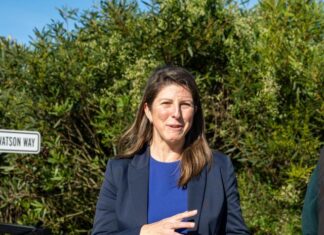THE CATS have released a statement in response to reports the club injected players with a legal drug supplied by controversial sports scientist Stephen Dank.
This is the full statement posted on the Cats’ website:
The AFL has again stated today that the Geelong Football Club has acted appropriately in relation to its medical practices after some speculation in the media. The AFL made the following statement to media after enquiries today.
“The AFL joint investigation with ASADA fully and forensically investigated the Geelong Football Club, which included seizing all email, phone and computer records.
The AFL is aware that Actovegin was purchased. Actovegin is not a prohibited substance.
The investigation found no evidence of any irregular supplement or injection program, and no evidence of any prohibited substances at the Geelong Football Club.”
While the club is pleased that the AFL has re-affirmed the fact we have acted in the correct manner, we feel that we need to provide further background to you, our supporters.
AFL INVESTIGATION
When the Essendon drugs issues were unearthed in February 2013, there was an immediate link to our club due to the fact that Dean Robinson had worked for both Geelong and Essendon.
The AFL announced that our club would be investigated as a result of this link. In the ensuing months we were investigated by the AFL and ASADA and we handed over all documentation regarding our fitness and medical dealings during that period. We were able to supply authorities with full and thorough record keeping of our practices.
The AFL and ASADA found our club had acted appropriately and had no case to answer. This is indisputable and the AFL has again re-affirmed this fact today in a statement.
STEPHEN DANK ROLE WITH CLUB
A question that we have been asked is what was our club’s links to Stephen Dank?
In 2008 or early 2009 Stephen Dank’s professional services were recommended to the club. Our then Assistant General Manager of Football Operations Steve Hocking met with Dank in regard to this, but after that meeting the club decided not to engage Dank’s services. At no time did Dank have a position with our club.
USE OF ACTOVEGIN
In 2007 Max Rooke was sent to Germany to undertake treatment on his hamstring injury. He visited Dr Hans-Wilhelm Muller-Wohlfarth, a world leader in the treatment of soft-tissue injuries. Part of that treatment was the injecting of Actovegin to treat the injury, a fact that was widely reported in the media at time. The treatment was successful and Rooke was able to return more quickly than previously thought.
The success of this treatment led the club’s medical staff to use Actovegin to treat other soft tissue injuries. Members of our medical staff travelled to Germany to meet with Dr Muller-Wohlfarth to gain a greater insight into his methods. This treatment was approved in 2009 by the AFL’s chief medical officer, Dr Peter Harcourt and is approved by ASADA and WADA.
Later that year the club sourced Actovegin from a company that was connected to Dank. These facts were all made known to the AFL and ASADA in 2013 during their investigation. It is normal for our medical staff to source treatments from various suppliers and to meet with suppliers, and in this case it was from this company and was a one off order. Dank had no connection with our players in this process.
At all times it was the club doctors that oversaw and conducted these treatments.
We trust that this clears up any misinformation or misconceptions about our medical practices.
The views in this article are those of the author and not necessarily those of the AFL or its clubs










